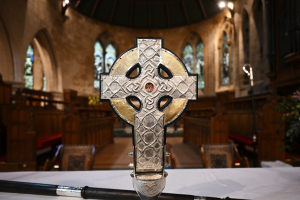The biggest demographic churches are missing

Our churches did well in reaching the agrarian culture. We gave the farmers time to get the chores done and get to church by 11:00 am. Unfortunately, this culture began to wane around 1860 with the onset of the railroad and industrial age.
Most of our churches have worship services for the farmers who no longer exist.
We haven’t changed a lot in the past 160 years. I guess life moves slowly for a lot of churches.
In the meantime, a dramatic shift is taking place in the American workplace. More people are working on weekends, many of them on Sundays, than ever before. But most churches haven’t moved their worship day at all. It’s still on Sunday mornings.
We keep hoping the farmers will show up.
While I would not advocate abandoning Sunday worship, I wonder why so few churches offer a non-Sunday alternative. There is a huge demographic we are missing: those working on the weekends. Consider these issues:
According to a 2016 time study conducted by the Bureau of Labor Statistics, 34 percent of the workforce works on the weekend. Do the numbers. The U.S. workforce is approximately 160 million. That means over 54 million work on the weekend. Please read the preceding sentence again. 54 million. That’s staggering.
- If someone works either day, Saturday or Sunday, they are not likely to attend Sunday services. For Saturday workers, Sunday becomes their day off after a tough work schedule.
- The reasons for not doing weeknight services are rarely theological. If you have a biblical conviction that Sunday should be the only day to have a worship service, stick with your conviction. For the rest of you, please consider this issue prayerfully and carefully.
- If your church has Sunday-only service or services, you are missing out on reaching one of three working persons. I really don’t think most church leaders realize how huge this number is.
- Most churches will not do a non-Sunday service because they’ve never done it before. Such is the most common excuse of dying churches.
- Some church leaders are rightfully concerned about leader exhaustion doing a service on a day other than Sunday. I get that. Such is the reason many leaders must view the non-Sunday service as their time of service. Many will not attend Sunday services at all. And a number of churches moving in this direction are doing so with a minimum of volunteers, such as a guitar-playing worship leader, and childcare only for the youngest kids.
- A few churches are experimenting with Thursday evening services on long holiday weekends. They are often able to reach the members who will be traveling over the long weekend.
- The challenges of weekend workers are exacerbated by our members who travel many weekends, by those involved in sports leagues, and by those who just see Sunday as a day off. Some may see offering an alternative service to be a compromise to culture. Others may see it as an opportunity to reach those in culture.
- The two fastest-growing demographics working on weekends are entrepreneurs and those with more than one job. The rise of the entrepreneurial society and the gig economy virtually guarantees this weekend workforce will increase, probably substantially.
The weekend workforce is not a future trend; it is a staggering present reality.
Some churches will adjust and seek to reach these workers.
Others will continue doing business as usual.
They are likely hoping and praying the farmers will show up on Sunday morning.
Originally posted at ThomRainer.com.
Thom S. Rainer is the founder and CEO of Church Answers, an online community and resource for church leaders. Prior to founding Church Answers, Rainer served as president and CEO of LifeWay Christian Resources.




























